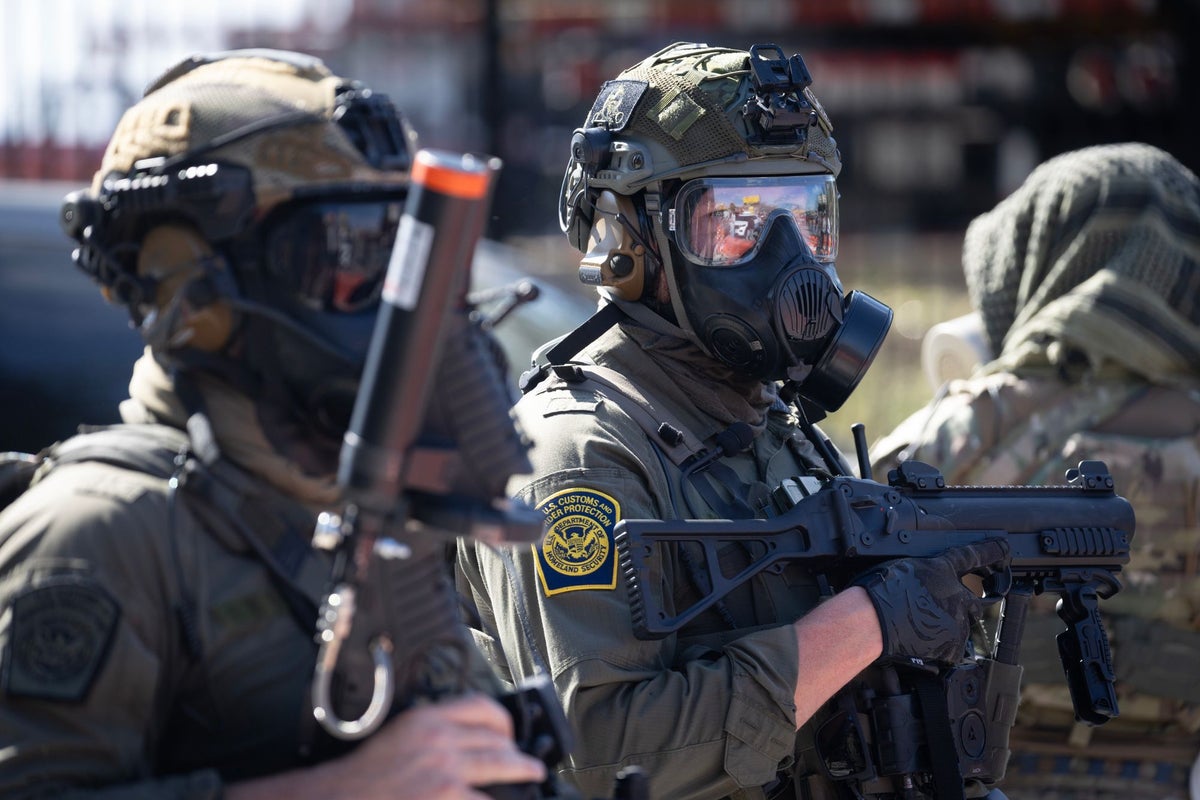Celebrations erupted in Gaza and Israel as a ceasefire and hostage deal brokered by Donald Trump could end two years of bloodshed. But for many Palestinians, anxieties about the future remain.
The president said Israel and Hamas had agreed to the first phase of the deal, which would bring an end to Benjamin Netanyahu’s assault on the enclave and the release of Israeli hostages and Palestinian detainees.
Israeli cabinet and government meetings taking place Thursday are the final step towards ratifying the deal. If approved, the ceasefire will come into effect 24 hours after the cabinet meeting, a government spokesperson said.
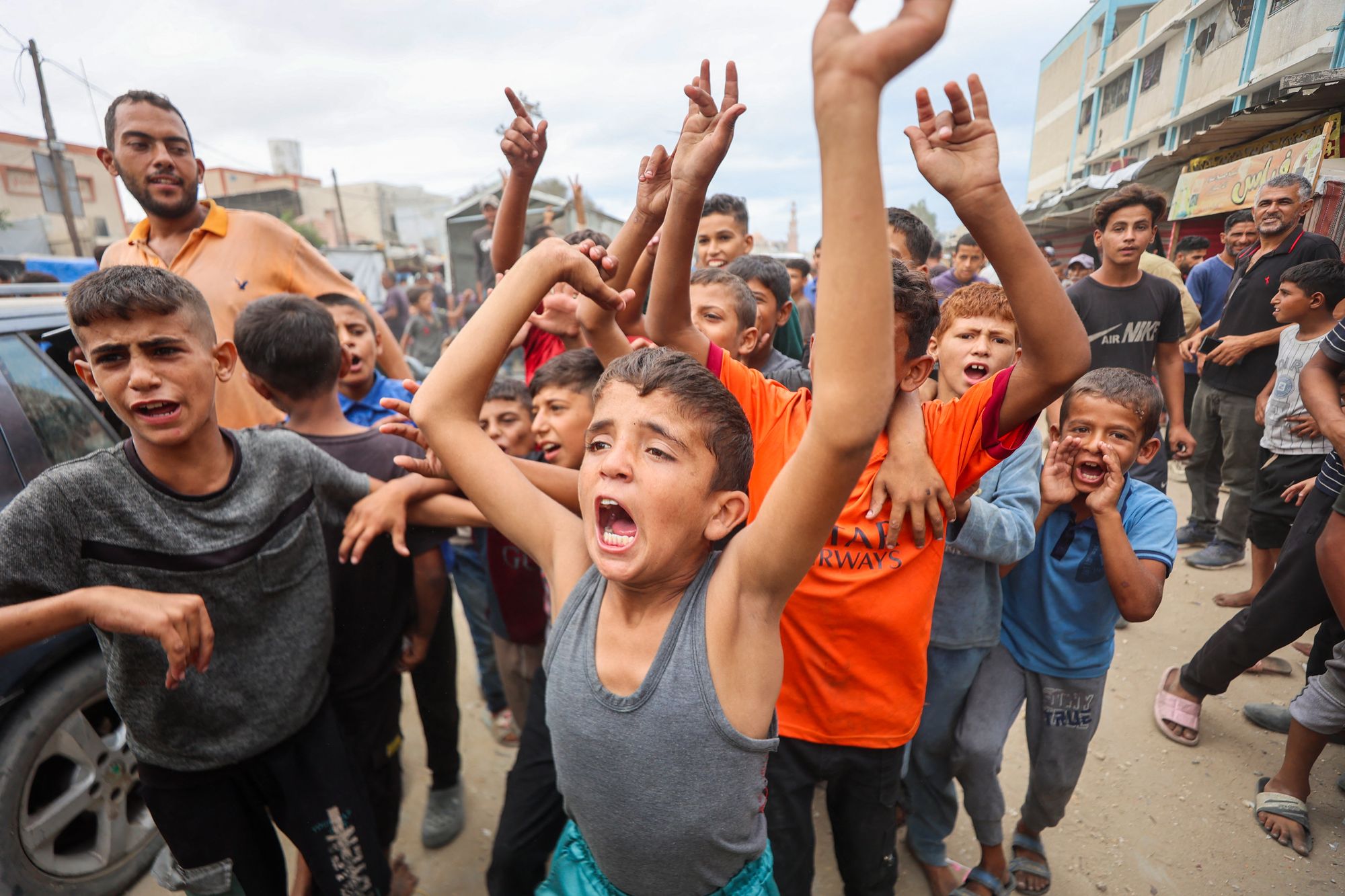
The Israeli military will withdraw to a smaller area of Gaza, before the 72-hour time window for the release of all 48 Israeli hostages – 28 of whom are believed to be dead – begins.
But amid the scenes of jubilation in both Israel and Gaza, Palestinians tell The Independent they are tentative about the ceasefire, and say that while there is relief, there is little real joy.
“For me, there are no celebrations, no joy, and no happiness because there is nothing to be happy about,” said Mustafa Al-Shafei, a father of two in Gaza.
“I am truly ashamed to celebrate because we have been through the most difficult circumstances and unforgettable moments. We were displaced dozens of times, starved to the point where our children cried from hunger.
“I am ashamed to celebrate because I remember when I go to the hospital and see the suffering of the wounded, the amputees, the orphaned children, and the mothers of the victims. All of them will experience great hardship. For me and for them, the war will not end with the signing of a truce.”
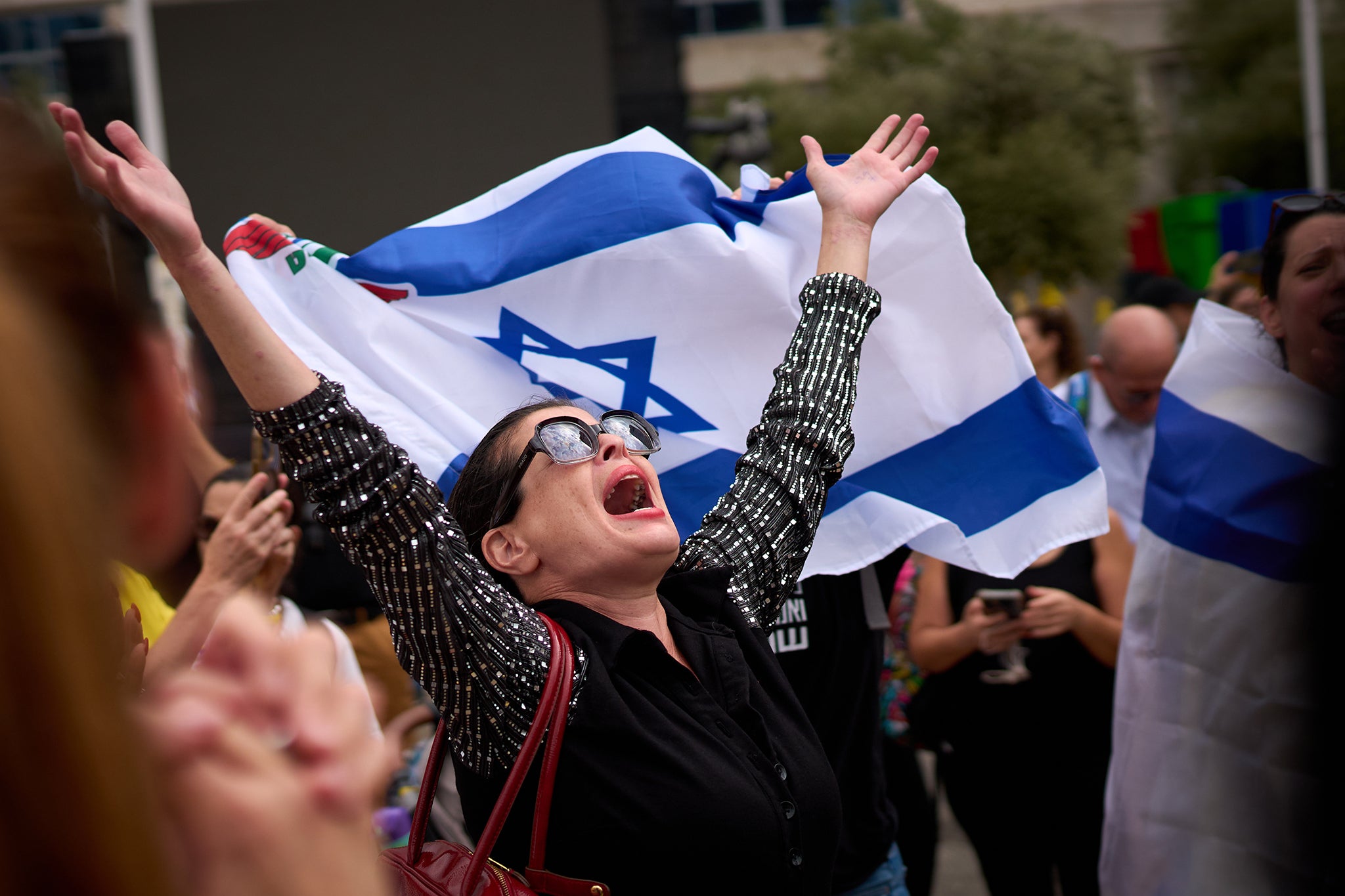
For Umm Ahmed, a 43-year-old who lost her husband due to a lack of medicine in the Gaza Strip following Israeli blockades, the announcement of a ceasefire carries behind it “two years of tears and hearts exhausted by fear”.
“We grew up listening to the sounds of bombing. Now we try to believe that calm is possible, that night can pass without warning, and that tomorrow can come without panic,” she said.
“We don’t need celebrations; we just want to live. We want to return to homes that have been reduced to ashes, to plant what was burned, rebuild what was destroyed, and reunite those who remain.”
Huda Omar, 27, told The Independent “the joy is incomplete” because the first phase only includes a partial Israeli withdrawal.
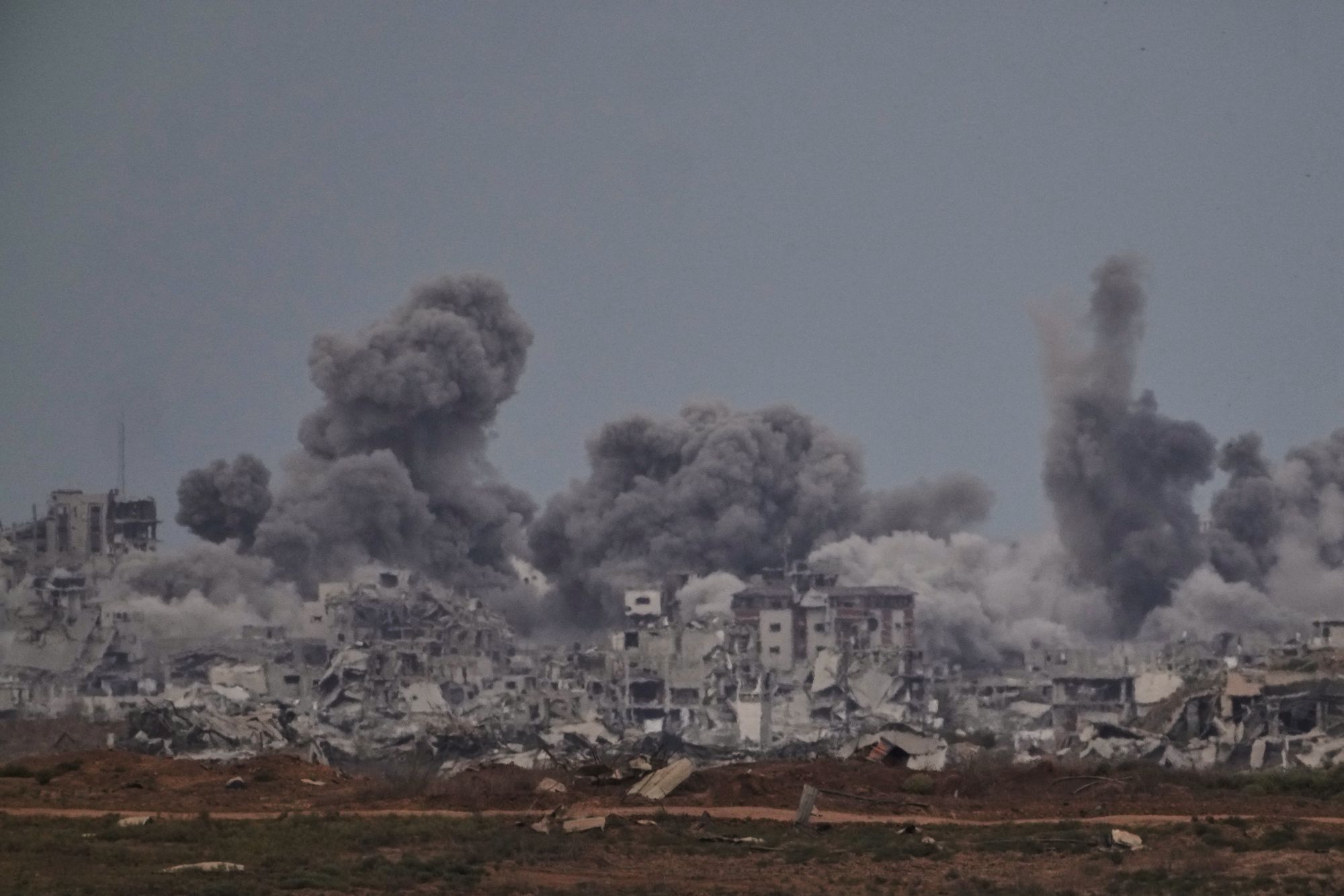
“The war may be over and a truce is about to begin, but the heart isn’t happy about that, and the heartbeats no longer beat rapidly for the joy of the war’s end as usual, everything has been destroyed: land, stones, and people,” he said.
“The land and homes have been demolished by the Israeli army, and we have lost many loved ones and friends.
“Despite this, there is a small amount of hope and joy for the end of this harsh war and the return to some of what remains of northern Gaza.”
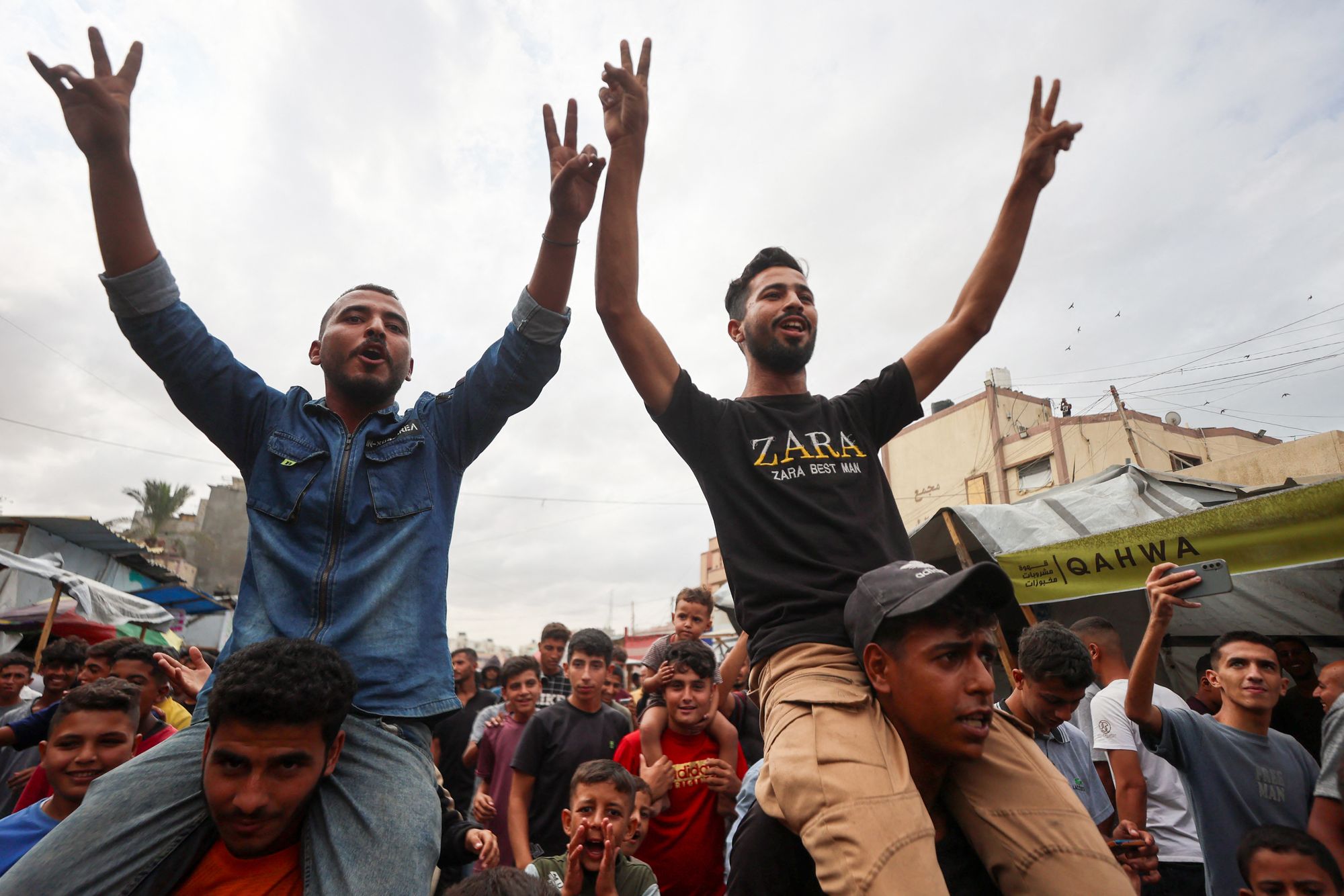
In Tel Aviv, scenes of pure joy erupted in Hostages Square, where weekly demonstrations have placed significant pressure on the Israeli government to agree a ceasefire deal and bring the hostages home.
“Finally a good morning,” said Gil Dickmann, the cousin of Carmel Gat, who was killed in captivity in August 2024. He has been a prominent campaigner for a hostage release deal. “We’re in such a great mood. It’s so hopeful today, we had a night of celebrations in hostages square.”
Families and activists were opening bottles of champagne for the “mere thought of getting the hostages back”, he said.
“It’s hard because we don’t want to get our hopes up before it actually happens, and it ain’t over till it’s over, but it looks like it’s actually happening. That’s why we can’t help but be optimistic,” he said.
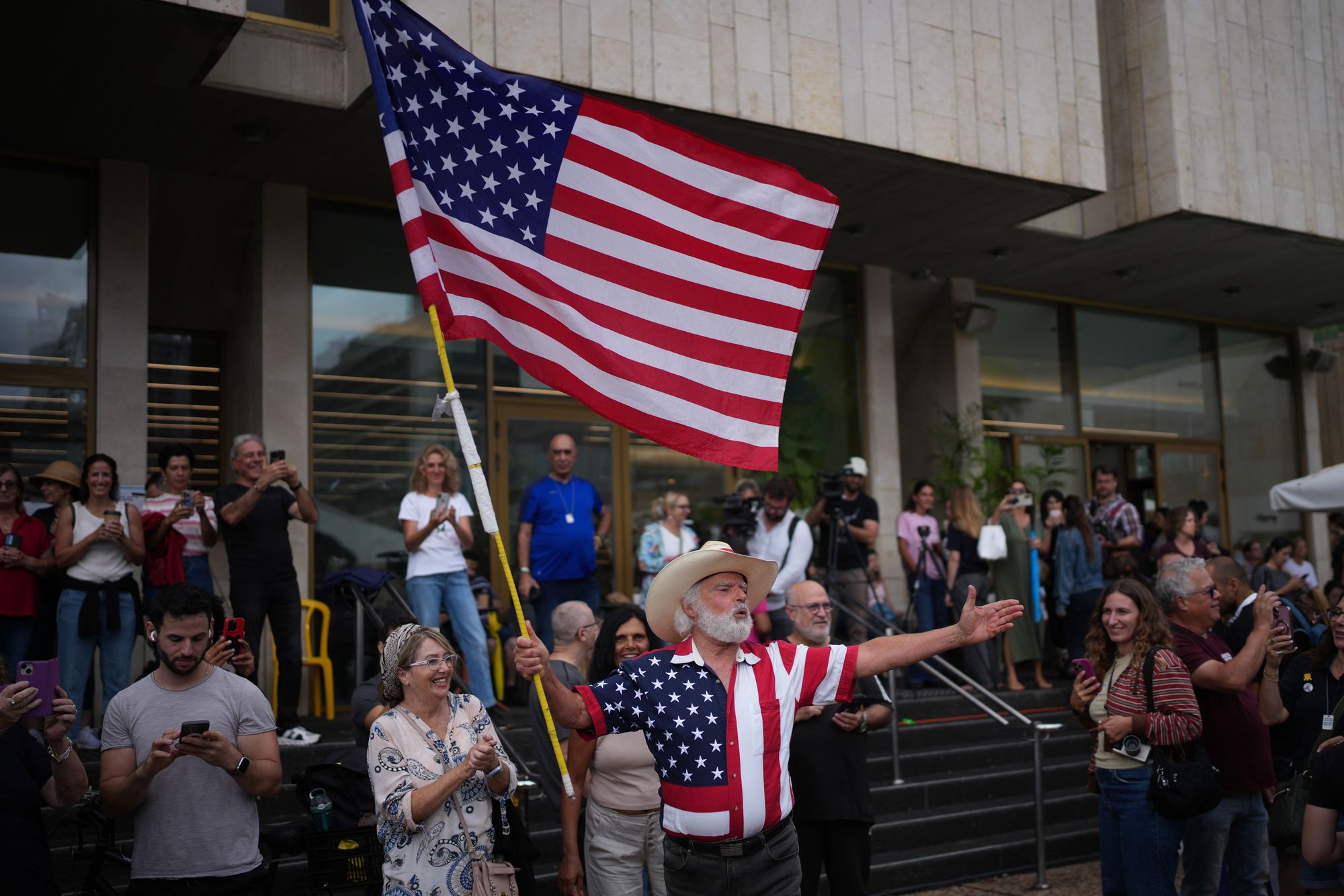
Yonatan Zeigen, whose mother, Vivian Silver, was killed on 7 October, told The Independent that there is work to do to ensure the peace deal leads to an end of the occupation and wider conflict.
“Most Israelis are ecstatic, and rightfully so in the context of the hostages,” he said. “However there is a lot of work ahead if we want this deal to not just end the carnage but really be a foundation for the end of the occupation and the conflict in general. In that sense, I’m alert.”
Omri Lifhshitz, 51, whose father Oded was seized on 7 October 2023 from Kibbutz Nir Oz and later killed in captivity, has said Israelis will have “happy days” ahead with the living hostages.
But he says Israelis are still “nervous right now”.
He added: “Until you see your loved one, until they cross that border, you fear it won’t happen. The fear may come later, right now we are focused on the positive and the end of the war. Better days for both sides.”
Additional reporting by Eilon Eisenberg.


